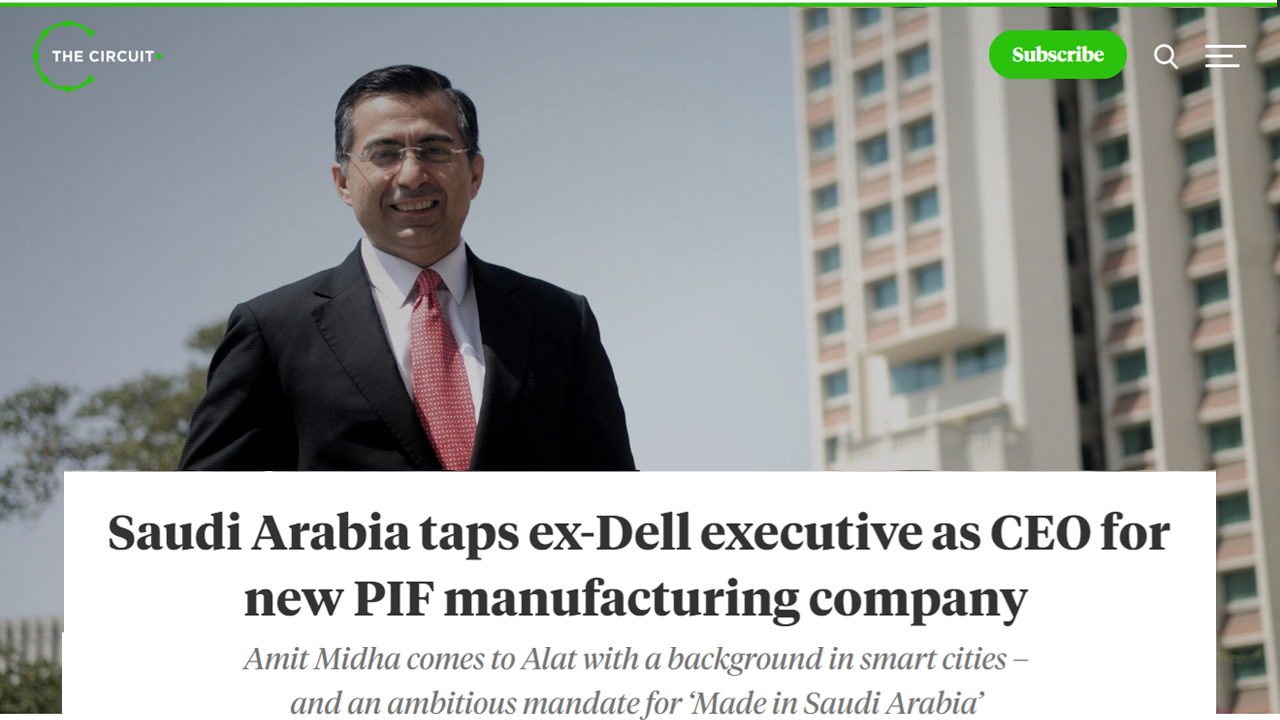Saudi Arabia appoints ex-Dell Technologies executive to lead the new $100 billion electronics manufacturing group Alat, formed recently by Public Investment Fund (PIF).
In February, Prince Mohammed bin Salman, Crown Prince, Prime Minister of the Kingdom of Saudi Arabia and Chairman of the Board of Directors of the Public Investment Fund (PIF), announced the formation of an advanced technologies, electronics and semiconductor manufacturer.
Called Alat (‘machines’ in Arabic), the new company will focus on manufacturing smart products for consumers, business and industry. The company will manufacture to serve local and international markets, and will help to make Saudi Arabia a global hub for sustainable technology manufacturing.
Business computers and consumer electronics spring to mind when many people think of electronics and semiconductor sector, but of course every industrial sector today uses such technology from aviation to automobiles, and from healthcare to oil production.
Saudi Arabia’s investment in AI and IoT for smart cities is driving demand for millions of microprocessors and controllers.
One big user of electronics and semiconductor products in Saudi Arabia is its fast growing smart cities sector. The government agreed a smart city strategy a few years ago, to improve the quality of life of citizens, achieving financial sustainability, and improving the quality of services. The new magacity NEOM is well known as a smart city project, or ‘cognitive city’. However, the smart city strategy includes all major cities in Saudi Arabia. Thus cities across the Kingdom are being equipped with sensors, IoT devices and smart controllers for transport management, building management, energy management, public safety and smart public services.
The Circuit asked me to comment on the launch of Alat and the opportunity for the new company to capitalise on the country’s electronics and semiconductor needs. There is massive potential for the new Alat company in Saudi Arabia’s industrial sector, to include manufacturing and smart cities.
Saudi Arabia’s investment in AI and IoT for smart cities is driving demand for millions of microprocessors and controllers. With both greenfield sites, including NEOM, and large-scale transformation plans for existing cities, such as Riyadh and Jeddah, there are significant opportunities for the country to manufacture smart electronics and reduce dependence on foreign imports.
However, there are many challenges, among them the fact that the country doesn’t have much of an electronics ecosystem to build on. So, building out this new sector will require both a carefully planned ecosystem that will connect with other local, regional and global ecosystems over time, and cherry-picking the most productive, highest value short-term investments.
You can read UAE Editor Kelsey Warner‘s full story in The Circuit here.



